Is The Nissan Versa Reliable?
Topics Covered in This Article
If you are considering buying a used car that has under 140,000 miles and is a 2012 model or newer, get a free quote for one of our "extended car warranty solutions".
100% Online, 9 Coverage Options and No Robocalls!
What You Need to Know About The Nissan Versa
The Nissan Versa was totally redesigned for the 2020 model year, yet still landed near the bottom of the ratings for subcompact cars when it comes to handling and acceleration.
This front wheel drive vehicle has room enough for five passengers and has “above its pay grade” interior. The Nissan Versa also offers a more-than-affordable low base price and a good list of standard features. Plus, it has outstanding gas economy: 27 to 32 mpg (miles per gallon) city and 35 to 40 mpg highway. All these facts may catch your eye, but truth be told, the Nissan Versa is mediocre where it counts most; the Versa has a very weak engine.
Yet the 2021 Nissan Versa still scored 7.9 out of a possible 10 points in the US News review of 17 data points. This score is a compilation of the following: Critics Rating 8.8, Performance 6.4, Interior 6.8, Safety 9.1 and the Quality and Reliability rating of an 83 out of 100.
Competitors of the Versa include the Chevrolet Spark and the Kia Rio. Other alternative comparable vehicles in the same class are the Volkswagen Golf, Mazda CX-3, Hyundai Accent, Mitsubishi Mirage, Toyota Yaris, Chevrolet Sonic, the MINI Cooper and the Toyota Corolla.
JD Power is another ranking company who reviewed the Nissan Versa and offered about the same findings. JD Power is an independent and unbiased consumer study survey group where all rankings are based on opinions of people who have used or owned the product being rated. Their key focus is to understand and uncover verified car owner experiences throughout the first three months of ownership and then again, subsequently, over the next three years of driving the vehicle. First categorized by price range and car size, the numbers derived from the study are then averaged between the specific model and other cars within the same category. Given to each model year, ratings are then tallied before findings are published: 40% for reliability, 20% drivers experience, 20% resale values and 20% dealership experience.
JD Power’s review of the 2021 Nissan Versa landed it in the #1 position in the category of “best small car” with a solid showing of 81 out of a possible 100 points overall. Arguably, US News ranked the 2021 Kia Rio as #1, while the Versa held the #3 position, tied with the Hyundai Accent and MINI Cooper.
The list of “pros” in the JD Power review after 90 days of ownership of a Nissan Versa were: comfort of the rear seats and the vehicle’s ability to carry everything needed. Also noted was that the Versa owners felt their Nissan would protect them in the event of an accident. What owners didn’t like was that the driving range of their vehicle was not great and that they experienced difficulty when maneuvering the Versa in and out of traffic. The smoothness of the engine (or actually, not so much smoothness) was a major “con”… and probably the reason for the second item listed as well, since the Nissan Versa only has a 122 horsepower engine which could make it difficult to generate the speed needed to merge into oncoming traffic.
The Versa offers three trim levels; the S, SR and SV. All Nissan Versa models come with the same four-cylinder engine and front-wheel drive. A five-speed manual transmission is standard and available on only one configuration, but a continuously variable automatic transmission (CVT) is optional in the base model. The CVT comes standard in the higher trim packages.
At the entry level, the S standard features include: keyless entry, power windows, AC, AM/FM radio, traction control, airbag, variable speed wipers, child rear door locks, plus driver assistance features including pedestrian detection and forward and reverse automatic emergency braking.
The mid-level Versa is the choice of many since it comes with the CVT transmission and this price is comparable to the cost of adding the CVT to the base model. The top-of-the-line SR will get you an additional satellite radio and fog lamps, plus, of course, the CVT automatic transmission.
Is The Nissan Versa Reliable?
In that same JD Power study we spoke of previously, the quality and reliability score for the Nissan Versa was 83 points out of a possible 100. This places the Versa in the ratings category of “great”. This study takes into account all level of defects, malfunctions and design flaws and covers every component in a vehicle – from engine to tail lights.
And, because you can never have enough ratings when researching a vehicle before you purchase, RepairPal.com gave the Nissan Versa a 3.3 out of 5 points for reliability. This awards the Versa only a “fair” rating based on their standards, but still ranks it 9th out of the 32 subcompact cars reviewed. RepairPal went on to say, “Fuel economy is one of the model’s defining traits, and it compensates for the underpowered engine…”
Because of the Versa’s overall reliability, you can expect this small car to reach 100,000-200,000 miles, if it is maintained properly by following the manufacturer’s suggested service schedule.
A side note: the Nissan Versa is not to be confused with the Nissan Versa Note. The Nissan Versa Note hatchback was discontinued in the United States after the 2019 model year but this model type is still available in other markets. It is expected that the Note, with its new design and e-Power hybrid system will make its way back to America in the not-too-distant-future.
The Nissan Versa is a standard three-box sedan with a wide grill, newer headlights and a “more mature” overall approach to driving. The Nissan Versa Note is sportier. It has scalloped door panels and a flatter roof line. Car and Driver says this about the Note, “Every Versa Note is front-wheel drive and features a 109-hp four-cylinder engine that pairs with a continuously variable automatic transmission (CVT). This combined with the Versa Note’s underpowered engine make for a lethargic and unrefined experience.”
The Note was also a subcompact car. It offered up 31 mpg in the city and 39 mpg for highway driving, probably because of its lack of power due to the underwhelming 109 horsepower engine.
However, the Nissan Versa Note did receive respectable reliability scores when reviewed. RepairPal.com gave the Versa Note a solid 4.0 out of 5.0, ranking it 11th out of 21 subcompact cars tested. But, since the subject of this article is the Versa, we will not be comparing the two models further.
What Are Some Common Nissan Versa Problems?
Model years 2009 and 2012 logged a high number of customer complaints. The 2012 Nissan Versa problems that were more severe, showed up at lower mileage and cost more to fix…so you might want to avoid that model year altogether.
Are There Nissan Versa Transmission Problems?
While the transmissions installed in the Nissan Versa S manual models are not immune to problems, the CVT transmissions have had many more problems. While that could be simply because there are more Versas on the road with CVT transmissions, it would be prudent to make sure you know what you’re getting, especially in older models.
Nissan Versa Transmission Problems
Model years 2012, 2013 and 2014 were found to be the worst for transmission problems in the Nissan Versa.
For the 2012 Nissan Versa, the cost to fix this transmission failure was approximately $3,500 and the issue occurred around 73,000 miles.
The 2014 Versa comes in second for the “worst” model year when it came to transmissions. Transmissions began to fail at around 82,000 miles.
The #3 position of worst Nissan Versa models for transmission problems is the 2013 model year. Complaints of transmission failure occurred at an average mileage of 90,000.
Because of the low initial cost, Nissan Versa owners have been known to simply trade in or sell their Versa instead of spending thousands of dollars repairing their faulty transmissions. Replacing a Versa transmission can currently run north of $4000.
Nissan Versa CVT Transmission Problems
CVT transmissions in the Nissan Versa – especially model years 2012 through 2017 –have been known to shudder and jerk while driving. Shifting between gears has proved difficult and the tachometer has been known to “jump around”. Many owners also reported whining noises. More troublesome is that owners have also reported that their Versa just abruptly stopped while driving. This erratic behavior was found to be caused by CVT transmission problems.
Additionally, CarComplaints.com notes that in late 2019, “the CVT defect was subject to a class action settlement. However the settlement only covered transmission repairs up to 7 years after purchase or 84,000 miles, whichever occurs first. Because many owners commonly drive 20,000 miles/year or more, Versa owners experiencing CVT transmission problems may find they are not covered by this settlement due to the mileage limitation.”
Nissan Versa AC Problems
As with other makes and models, the most common reasons an air conditioner in your vehicle would cease to function properly include: a refrigerant leak, dirty cabin air filter impeding the cold air flow, dirty or clogged AC condenser or evaporator, failed blower motor, a faulty compressor or an electrical system defective. The blender door actuator might also be the reason for an AC to not work properly.
RepairPal.com offers that 37% of the time a Versa AC unit fails to blow cold air, it is a leak in the refrigerant. 21% of the time it’s because there’s an electrical problem in the climate control system. And, 12 % of the time it’s the compressor that’s gone bad.
Like many cars, the Versa has experienced AC problems. Everything from just “blowing warm air” to “AC only works when driving” has been reported. Although the problem with a Nissan Versa AC unit can happen at any time and there have been a number of reported incidents, as well as numerous online Versa specific groups discussing the problem. There have been no recalls for this issue because most of the time it’s due to poor attention to the suggested maintenance needed for the air conditioning system.
Nissan Versa Coil Spring Issues
The 2012 Nissan Versa suspension was prone to problems. On many occasions, the coil springs were found to be at fault, often breaking down prematurely and taking other parts of the vehicle’s suspension out with it. A recall was issued on the front coil spring of the Nissan Versa. It was found that the corrosion coating on the springs was inadequate, causing the coil springs to rust and deteriorate.
2012 Nissan Versa Electrical Problems
And, as if the 2012 Nissan Versa didn’t have enough problems with its transmission, electrical issues were also cited as a major concern for this model year. A NHTSA (National Highway Traffic Safety Administration) report was issued on the 2012 Versa for electrical problems resulting in 3 crashes and 3 fires.
Nissan Versa Stalling Problems
The problem with diagnosing a stall issue is trying to simply reproduce the condition that initially led to the stall. Simply put, all cars need air, fuel and a spark to run. These three key elements also need to be in the right quantities and sequence. One thing goes wrong and a stall may occur.
A Versa that stalls may have bad gas, not enough gas or have a poor air fuel mixture. A stall could occur if the fuel injector system is allowing too much or too little fuel into the combustion chamber. It could also be that the fuel pump or the fuel filter needs serviced or replaced.
But it doesn’t end there, if the engine timing is off, a car might also stall.If there are problems with the throttle position sensor or the MAF/MAP sensors or the oxygen sensor, the car may stall. The torque converter can cause stalling.
Even a low oil level can lead to a stall.
Low story short, if your Nissan Versa has stalling problems, it’s best to seek out an experienced auto repair expert…and don’t wait!
Nissan Versa Throttle Body Problems
A dirty or faulty throttle body is just one more thing that can cause a Nissan Versa to stall. A throttle body is part of a car’s air intake system. It controls the amount of air entering the engine and is a direct response to a driver pushing on the accelerator.
When a throttle body is not functioning properly a low idle may occur. This often manifests as a stall when you are coming to a complete stop or when you press on the accelerator quickly. This issue should be repaired without hesitation due to safety concerns.
Nissan Versa Airbag Problems
Nissan, like many other manufacturers, used Takata airbags on many of their vehicle models. These particular airbags were the subject of much negative press leading to a recall because they either deployed too slowly, not at all, or with such force that they burst and injured the occupants that they were supposed to be protecting. This problem affected the Nissan Versa in model years 2007-2011.
Additionally, in November of 2021, a class action lawsuit was filed against Nissan regarding its side curtain airbags. This suit includes all owners and lessees of 2015 – 2019 Nissans and alleges that defective computer software caused “airbags to improperly deploy even though there is no justifiable risk to driver safety.” The suit also stated that because of this defect, the values of the used vehicles on the market have been diminished.
Nissan Versa Steering Problems
2016 Nissan Versa owners reported that their vehicles tended to drift or “jumped” into other lanes while driving. This problem was noted on highways while traveling at highway speeds. Dealerships claimed that the vehicles affected were seriously out of alignment, but after repairs were completed, the issue was not resolved.
These same steering problems were later reported to the NHTSA (National Highway Traffic Safety Administration). In addition to the drifting characteristic, owners stated that their steering wheels would lock up without warning, causing a severe safety concern. But again, after taking the Nissan Versa in for repairs, the problems persisted.
Nissan Versa Idle Problem
There are three common reasons for a car to idle roughly:
One – The spark plugs (21% of the time this is the reason). When spark plugs fail, the check engine light will come on and you’ll likely notice a decrease in gas mileage, power loss or surging and excessive crank time to start the car. Although spark plugs do wear out, they are generally good for around 100,000 miles. This estimate can be affected by harsh driving conditions or leaking internal fluids. The cost of spark plug replacement is usually less than $250.
Two – The ignition coil (15% of the time a car idles roughly, it’s the ignition coil).
Ignition coils send information to the spark plugs when it’s time to start the engine. Cars manufactured in the last 30 years usually have one ignition coil per cylinder (for example, in the Versa – 4 cylinders, 4 ignition coils) When a car’s ignition coil is failing, the check engine light will come on. You may notice reduced fuel economy and increased emissions. The car may not start or the engine will run poorly. Replacement of a Nissan Versa ignition coil is estimated between $200 and $300.
Three – An internal vacuum leak (34% of the time, it’s a vacuum leak that’s causing the idling issues). If you have a vacuum leak it will introduce excess air into the engine which will affect how the engine runs. You may notice hesitation and rough idling, hear “vacuum” sounds and the check engine light will illuminate. Depending on where the leak is located, costs to repair could be as low as $150 or as high as $1000. It is not wise to drive with a vacuum leak because it can cause a drastic loss of engine power as it worsens.
What is The Nissan Versa Maintenance Schedule?
The Versa has a relatively easy maintenance schedule.
At 7,500 miles, you will need an oil and filter change. You should continue to change the oil and filter every 7,500 miles.
In addition to the basic oil change service, at 15,000 miles you should replace the cabin air filter and rotate the tires.
At 22,500 miles, you’ll need another oil change and tire rotation.
At 30,000 miles, again change the oil and rotate the tires. Additionally replace the air filter, flush the brake system change the cabin filter and perform a transmission fluid service.
37,5000, 45,000, 52,500 miles will just need an oil change and tire rotation.
At 45,000 also replace the cabin air filter again.
At 60,000 miles flush the cooling system, brake system, do a transmission fluid service and replace the air and cabin air filter.
This easy and affordable maintenance schedule continues in pretty much the same way throughout the life of your Nissan Versa. If you have further questions regarding needed standard maintenance, check your manual, contact your dealer or an independent auto repair center.
The average cost to maintain a Nissan Versa over 10 years on the road is about $1500 less than other comparable, popular sedan models. A Versa will cost you about $5,330 for maintenance and repairs during the first 10 years of ownership.
The cost of routine maintenance for a Nissan Versa obviously goes up with the age of the vehicle. CarEdge.com shares information about the car’s age, the probability of major repairs being needed and the estimated cost for average repairs/maintenance annually:
Year 1
Chances of Maintenance Issue: 1.69%
Average Costs: $173
Year 2
Chances of Maintenance Issue: 2.81%
Average Costs: $205
Year 3
Chances of Maintenance Issue: 3.15%
Average Costs: $256
Year 4
Chances of Maintenance Issue: 5.57%
Average Costs: $337
Year 5
Chances of Maintenance Issue: 7.98%
Average Costs: $405
Year 6
Chances of Maintenance Issue: 8.98%
Average Costs: $511
Year 7
Chances of Maintenance Issue: 9.68%
Average Costs: $727
Year 8
Chances of Maintenance Issue: 12.52%
Average Costs: $813
Year 9
Chances of Maintenance Issue: 13.83%
Average Costs: $893
Year 10
Chances of Maintenance Issue: 16.43%
Average Costs: $1,011
Year 11
Chances of Maintenance Issue: 25.45%
Average Costs: $1,027
Year 12
Chances of Maintenance Issue: 31.66%
Average Costs: $1,153
And, we lied previously…here’s just a little more comparison on the Versa verses the Versa Note (say that three times fast!)
Nissan Versa Note Maintenance Schedule
It is generally suggested that your Nissan Versa Note be serviced every 6,000 miles or 6 months, whichever comes first. It is wise to consider that the Versa Note is less reliable than its rivals; it finished in last place in the small car category in several independent reviews. So a proper, consistent maintenance schedule is a must.
 What is The Best Year for a Nissan Versa?
What is The Best Year for a Nissan Versa?
Looking at a graph found on the CarComplaints.com website, it is immediately noted that beginning in 2016, the overall complaints on the Nissan Versa have dropped dramatically.
https://www.carcomplaints.com/Nissan/Versa/
It is apparent that the 2019 Nissan Versa could be considered the best model year.
There was only one recall for the 2019 Versa and it was for a faulty backup camera and issued for the Nissan Versa Note model, specifically. It was also noted that an adjustment made by owners could render the camera image “no longer visible” and the system retained that adjustment when the vehicle was put in reverse the next time. (In-other-words: operator error) Regardless, this was against the rules of the Federal Motor Vehicle Safety Standards (FMVSS) and the NHTSA Campaign # 19V654000 from September 12, 2019 affected 1,229,830 Nissan vehicles.
How Do You Get The Best Deal on Nissan Versa?
Whether you’re wanting the basics or something more “luxury”, the 2021 Nissan Versa lineup offers interior options for everyone.
The least expensive Nissan Versa is the S package with a manual transmission. The MSRP (Manufacturer’s Suggested Retail Price) starts at a low $14,980.
All Versas offer a 7 inch touchscreen display, but upgrading to the SV or SR configuration gains you access to Nissan Connect. This gives you driver comfort features like navigation, SiriusXM satellite radio and NissanConnect services. Find out more about NissanConnect here https://www.nissanusa.com/connect.html
Adding the CVT in the base model will run around $2000 , but since CVT is included in the mid level Versa SV configuration, it might be worth upgrading at this point. The midlevel Versa SV has a MSRP of $17,790. The SV comes with Android Auto, Apple CarPlay, heated outside mirrors and satellite radio. You’ll also get blind spot monitoring, rear cross traffic alert, driver alertness monitoring, and a rear-seat reminder.
The Versa SR retails for $18,390 and includes a leather-wrapped steering wheel and shift knob. Additionally the SR has an automatic temperature control and available heated from seats. And FYI, the SR moniker means “sportier ride or sport rally” in Nissan language.
CarEdge.com suggests that the Nissan Versa will depreciate about 45% after the first five years. Older, used models offer spacious interiors and good performance, if they were properly maintained. Recent model years have a good list of safety features and great fuel economy.
Summary
The 2021 Nissan Versa ranks near the top of the subcompact car class thanks to its nice interior, roomy trunk, and smooth ride. The Versa is considered an excellent value for the price although its engine is a bit “dull.”

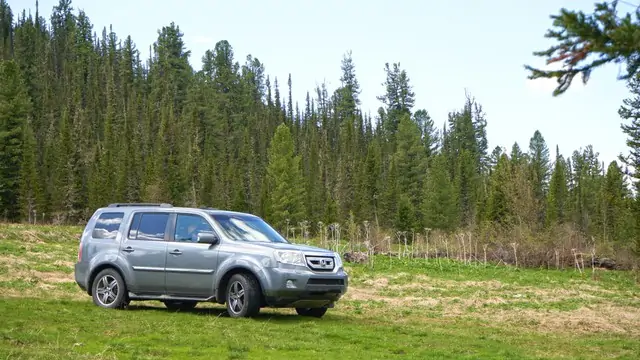
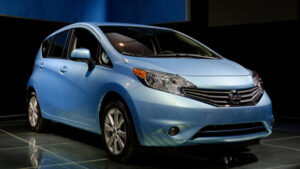
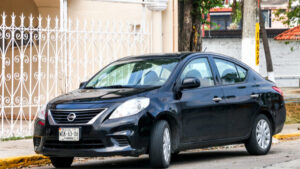
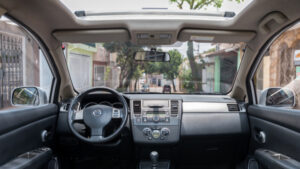
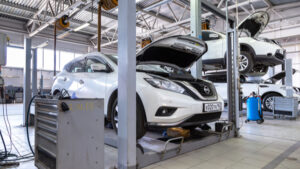
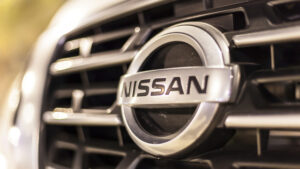 What is The Best Year for a Nissan Versa?
What is The Best Year for a Nissan Versa?
